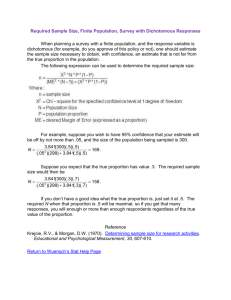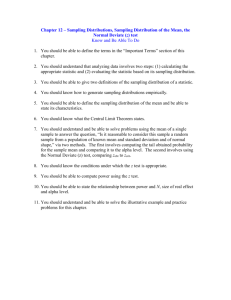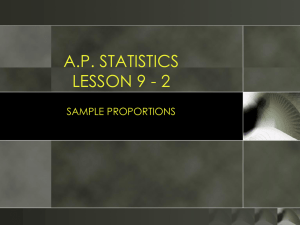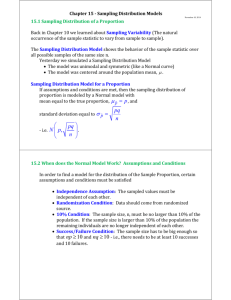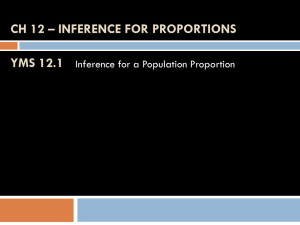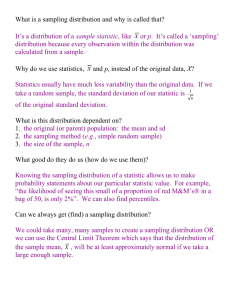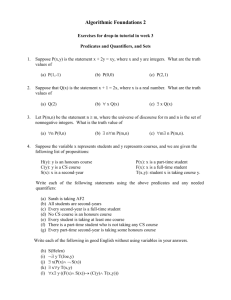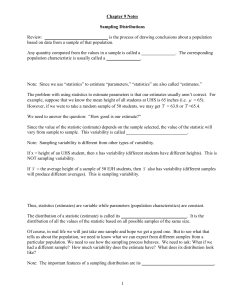9.1 Simple random sampling
advertisement
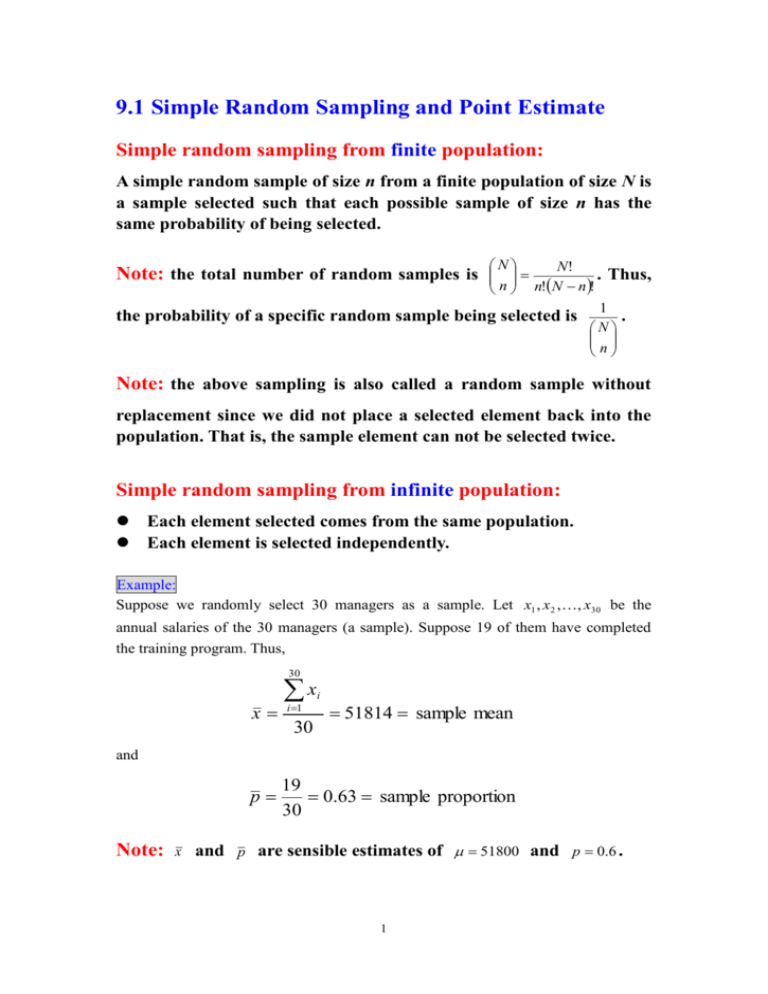
9.1 Simple Random Sampling and Point Estimate Simple random sampling from finite population: A simple random sample of size n from a finite population of size N is a sample selected such that each possible sample of size n has the same probability of being selected. N N! . Thus, n n!N n ! 1 the probability of a specific random sample being selected is . N n Note: the total number of random samples is Note: the above sampling is also called a random sample without replacement since we did not place a selected element back into the population. That is, the sample element can not be selected twice. Simple random sampling from infinite population: Each element selected comes from the same population. Each element is selected independently. Example: Suppose we randomly select 30 managers as a sample. Let x1 , x2 ,, x30 be the annual salaries of the 30 managers (a sample). Suppose 19 of them have completed the training program. Thus, 30 x x i 1 30 i 51814 sample mean and p Note: 19 0.63 sample proportion 30 x and p are sensible estimates of 51800 and p 0.6 . 1 Point estimate: A point estimate is a statistic based on a sample of size n (not necessary to be simple random sample) from a finite population of size N. Suppose x1 , x2 ,, xn is the sample. Then, n x x i 1 n n s2 x i 1 i i sample mean x 2 sample variance n 1 and the sample proportion p are point estimates of the population mean , the population variance 2 , and the population proportion p, respectively. Note: x , s 2 and p are not the only estimates. They are just some sensible estimates. Example: Suppose we have a population of 40 elements 148 148 149 149 153 154 155 155 156 156 157 157 158 158 158 158 158 159 159 160 160 160 161 162 162 162 163 163 163 163 164 164 164 164 165 165 165 165 165 166 Suppose the first row of the table of random number is 63271 59986 71744 51102 15141 80714 58683 93108 13554 79945 Please use simple random sampling to obtain a sample of 5 elements. 2 Online Exercise: Exercise 9.1.1 Exercise 9.1.2 Exercise 9.1.3 3
